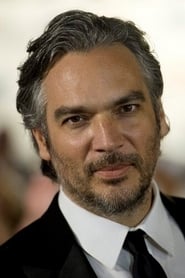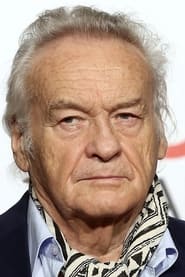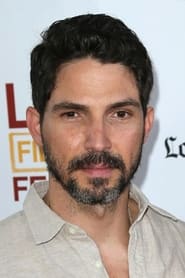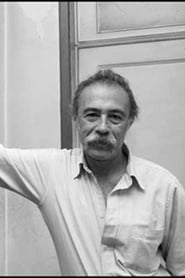
Ask Your Own Question
What is the plot?
Sorry, we aren't able to watch and write up a full detailed plot yet. Check back in a few days.
What is the ending?
In the ending of "Before Night Falls," Reinaldo Arenas, the protagonist, faces the culmination of his struggles against the oppressive regime in Cuba. After enduring imprisonment and persecution for his sexuality and literary voice, he ultimately escapes to the United States. However, he is haunted by memories of his past and the friends he lost. The film concludes with Reinaldo reflecting on his life, his identity, and the power of his words, even as he faces the reality of his exile.
As the film approaches its conclusion, we find Reinaldo Arenas, portrayed by Javier Bardem, in a state of both physical and emotional turmoil. He has endured the harsh realities of life under Fidel Castro's regime, where his identity as a gay man and a writer has made him a target. The narrative unfolds with Reinaldo's escape from Cuba, a desperate bid for freedom that is fraught with danger and uncertainty.
Scene by scene, we witness Reinaldo's journey. After being released from prison, he is determined to leave Cuba. He navigates the treacherous waters of the Florida Straits, a perilous journey that symbolizes his quest for liberation. The ocean is vast and unforgiving, mirroring the internal struggles he has faced throughout his life. As he sails toward the United States, the waves crash against the small boat, a physical manifestation of the obstacles he has overcome.
Upon reaching the shores of Miami, Reinaldo is met with a mix of relief and sorrow. The vibrant colors of the city contrast sharply with the oppressive grayness of his past in Cuba. Yet, even in this new land of opportunity, he grapples with the ghosts of his former life. The memories of friends who were lost to the regime, such as his lover, and the pain of exile weigh heavily on him. He reflects on the sacrifices made for his art and the cost of his freedom.
In a poignant moment, Reinaldo recalls the power of his words, the very essence of his identity as a writer. He understands that while he may be physically free, the emotional scars of his past remain. The film captures his internal conflict as he seeks to reconcile his experiences with his aspirations as a creator. He is determined to continue writing, to give voice to those who cannot speak, even as he faces the loneliness of exile.
The film concludes with Reinaldo's acceptance of his identity and the realization that his art will endure beyond the confines of his past. He stands as a testament to resilience, embodying the struggle for freedom and self-expression. The final scenes emphasize the importance of storytelling, as Reinaldo's narrative becomes a beacon of hope for others who have faced similar struggles.
In the end, Reinaldo Arenas finds a bittersweet sense of closure. He has escaped the physical confines of Cuba, but the emotional and psychological impacts of his experiences linger. The film leaves viewers with a powerful message about the enduring nature of the human spirit and the transformative power of art, even in the face of oppression.
Is there a post-credit scene?
The movie "Before Night Falls," produced in 2000, does not have a post-credit scene. The film concludes with a poignant ending that encapsulates the life and struggles of the Cuban writer Reinaldo Arenas, portrayed by Javier Bardem. After a harrowing journey through oppression, exile, and the quest for artistic freedom, the film ends on a reflective note, emphasizing the themes of resilience and the enduring power of creativity. The credits roll without any additional scenes or content following them.
What is the significance of Reinaldo Arenas' relationship with his mother in the film?
Reinaldo Arenas' relationship with his mother is deeply significant in 'Before Night Falls.' His mother, a strong and supportive figure, represents a connection to his roots and the struggles of his childhood in Cuba. She embodies the traditional values and the love that nurtures his artistic spirit. Throughout the film, her unwavering support contrasts with the oppressive political environment, highlighting the personal sacrifices made for artistic freedom. This relationship fuels Reinaldo's determination to express himself despite the dangers he faces.
How does Reinaldo Arenas' sexuality impact his life and work in the film?
Reinaldo Arenas' sexuality is a central theme in 'Before Night Falls.' His open homosexuality places him at odds with the conservative Cuban society and the oppressive regime of Fidel Castro. This aspect of his identity not only shapes his personal relationships but also influences his literary work, as he often writes about love and desire in ways that challenge societal norms. The film portrays the struggles he faces due to his sexuality, including imprisonment and persecution, which ultimately drive him to seek refuge in the United States.
What role does the character of the prison warden play in Reinaldo Arenas' story?
The prison warden in 'Before Night Falls' serves as a representation of the oppressive regime that seeks to silence dissenting voices. He embodies the brutality and dehumanization of the Cuban prison system, where Reinaldo is subjected to harsh treatment and psychological torment. The warden's interactions with Reinaldo highlight the power dynamics at play, as well as Reinaldo's resilience and refusal to be broken. This character is pivotal in illustrating the stakes of Reinaldo's fight for freedom and self-expression.
How does Reinaldo Arenas' experience in exile shape his identity in the film?
Reinaldo Arenas' experience in exile profoundly shapes his identity in 'Before Night Falls.' Upon arriving in the United States, he grapples with feelings of loss, isolation, and the struggle to adapt to a new culture while maintaining his Cuban identity. The film depicts his longing for home and the bittersweet nature of freedom, as he faces the challenges of being an immigrant and a writer in a foreign land. This journey of self-discovery and the quest for belonging are central to his character's evolution throughout the narrative.
What is the significance of Reinaldo's literary works in the context of the film?
Reinaldo Arenas' literary works are of immense significance in 'Before Night Falls,' serving as both a form of resistance and a means of self-expression. His writings reflect his experiences, desires, and the harsh realities of life under a repressive regime. The film illustrates how his literature becomes a vehicle for his voice, allowing him to challenge the status quo and assert his identity. The act of writing is portrayed as a powerful act of defiance, and his works ultimately become a testament to his enduring spirit and the fight for artistic freedom.
Is this family friendly?
"Before Night Falls," produced in 2000, is not considered family-friendly due to its mature themes and content. Here are some potentially objectionable or upsetting aspects that may affect children or sensitive viewers:
-
Violence and Persecution: The film depicts the harsh realities of life for a gay man in Cuba, including scenes of violence and persecution that can be distressing.
-
Sexual Content: There are explicit depictions of same-sex relationships and sexual encounters, which may be inappropriate for younger audiences.
-
Themes of Oppression: The film explores themes of political oppression, imprisonment, and the struggles of artistic expression under a repressive regime, which can be heavy and unsettling.
-
Death and Suffering: Characters experience significant suffering, including imprisonment and the threat of death, which can be emotionally intense.
-
Substance Use: There are instances of drug and alcohol use that may not be suitable for children.
These elements contribute to the film's overall tone and message, making it more appropriate for mature audiences.
















































